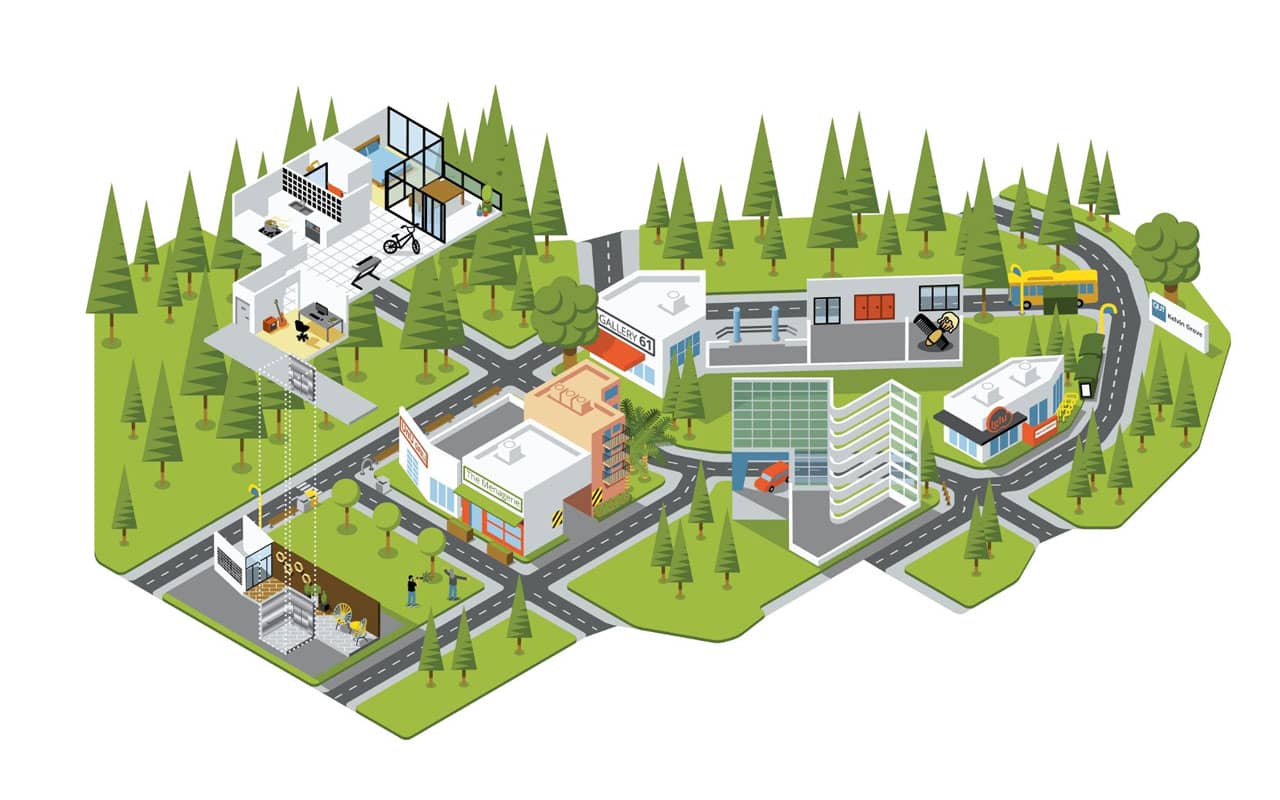 You snap awake at 2 AM. You’ve got that nagging feeling.
You snap awake at 2 AM. You’ve got that nagging feeling.
Geez, I can’t remember anything. I know my memory needs help but taking chemicals is a firm NO. Whatever I do, it has to be all-natural!
The question is:
Which natural memory enhancer will work for you?
Maybe you can’t memorize a set of mathematical equations.
Or you’d like to learn a foreign language but don’t think there are enough hours in the day to even retain the basics.
Are you here because you’re just fed up with losing the darn car keys again and again and again?
Maybe you feel like Harry Potter when Professor Dumbledore pointed his magic wand and yanked some memories right out of his head.
Should remembering simple things, or even new, sometimes complex concepts be that hard?
No. It shouldn’t.
Having written over a dozen best-selling books on the topics of memory and language, I can tell you, there are a lot of ways you can help your memory.
Which natural memory enhancers actually work?
Let’s find out.
Here’s what this post will cover:
9 Powerful Natural Memory Enhancers in Food
Your 70+ List: What Food can Improve Memory?
Natural Remedies for Memory Loss: The Best Diet
The Big 4: What Foods are Bad for Your Memory?
Will a Herbal Memory Booster or Supplement Work for You?
The Truth About “Healthy Body, Healthy Mind”
Natural Short-Term Memory Loss Treatment: Hold the Drugs!
The Ultimate Natural Remedies for Memory (Give Your Brain a Workout)
We’ll begin with how to improve your memory, naturally.
Natural Ways to Improve Memory
You are what you eat. So let’s look at how nutrition can boost your memory.
9 Powerful Natural Memory Enhancers in Food
If you eat for heart health, you also help keep dementia at bay.
The best diets for your memory are loaded with these disease preventatives.
Antioxidants that inhibit the free radicals that cause cell damage.
Anti-inflammatories to reduce inflammation for better overall health.
Here’s your “power” list:
- Beta-carotene (a carotenoid) is an antioxidant
- Caffeine is a brain stimulant
- Curcumin is an anti-inflammatory
- Fiber is an anti-inflammatory
- Flavonoids improve sustained mental effort
- Lycopene is an antioxidant
- Vitamins A, C & E are antioxidants
- Vitamin B (also called folate or folic acid) improves mood and cognitive function
- Omega-3 fatty acids are anti-inflammatories
But how do you know exactly which foods and memory boosting vitamins you should eat as a natural memory booster?
Your 70+ List: What Food Can Improve Memory?
I know what I’ve just shared could have you Googling terms like “Which fruit is good for brain memory?” until the cows come home.
To save you time, eat from this 70+ list to improve your brainpower:
- Avocados are rich in omega-3 fatty acids
- Cherries contain vitamin A, folic acid, and fiber
- Oranges are high in vitamin C and folate
- Berries like cranberries, blueberries, raspberries, strawberries, and blackberries are rich sources of antioxidants and anti-inflammatories
- Watermelon is high in lycopene
- Cruciferous veggies like broccoli, Brussels sprouts, cabbage, and cauliflower are high in B vitamins
- Dark leafy green veggies like chard, collards, kale, and spinach are rich in vitamins A, C, E, and folic acid
- Legumes like garbanzo beans, lentils, and split peas contain vitamin B and are a rich source of folic acid
- Tomatoes are high in lycopene
- Fatty fish like mackerel, salmon, sardines, and tuna are loaded with omega 3 fatty acids
- Egg yolks are a rich source of omega-3 fatty acids
- Lean chicken is high in vitamin B
- Nuts like almonds, hazelnuts, and pecans, with walnuts being the highest in antioxidants
- Dark chocolate with over 70% cocoa is rich in flavonoids
- Turmeric is a powdered spice from a plant root and is rich in curcumin
- Whole grains are a good source of fiber
- Coffee is high in caffeine
- Green tea is rich in antioxidants
But maybe you don’t want to choose from that huge list. What should you do?
Natural Remedies for Memory Loss: The Best Diet
You’ve just had a ton of ingredients tossed at you.
If you’d rather just pick up an eating program and let that do the heavy lifting on recipes, take a look at the Mediterranean diet. The Alzheimer’s Society UK suggests this diet is a healthful approach.
(And, it’s packed with all the ingredients above.)
But if there are foods that are good for memory, are there things you should avoid?
The Big 4: What Foods are Bad for Your Memory?
Highly processed foods cause a litany of chemical reactions that lead to inflammation in the brain and impaired cognitive function.
Limit eating these as much as possible:
- Cheeses like Cheese Whiz, mozzarella sticks, and Laughing Cow
- Smoked meats such as over-the-counter deli slices and bacon
- Refined carbohydrates like white pasta, flour, and bread
- White sugar products
You might wonder: are there any shortcuts? Can’t I just take a supplement or memory vitamin instead of eating healthy?
Will a Herbal Memory Booster or Supplement Work for You?
If you’ve been looking for the easy pop-a-pill to improve your memory, you may be out of luck.
The natural health market is saturated with over-the-counter “magic memory” pills claiming to be “the best supplement for memory and concentration.”
Here are four of the most popular pills taken for memory:
- Ginkgo Biloba ( maidenhair tree) may improve cognition as it tends to improve blood flow in small vessels
- Ginseng (the root of a plant in the genus Panax) is said to promote feelings of calmness
- Omega-3 Fatty Acids (fish oil tablets) are strongly believed to lower the risk of Alzheimer’s
- Vitamin E (as a supplement) has been given to Altzheimer’s patients in small clinical trials and shown promise
I know we’re looking at “what actually works” today. Despite the money being spent on herbal and other supplements, they’re NOT proven to work.
(Statista.com said that in 2019, over $31 Billion was spent on natural supplements, just in the USA.)
As for FDA-approved natural memory supplements… there are none. Because of this, strength and purity vary widely across brands.
And that’s tragic because a lot of people taking these supplements wind up suffering from concentration deficits instead of seeing anything like improvement.
So, if you’re going to try herbs or other supplements, do your research.
The Truth About “Healthy Body, Healthy Mind”
Working out aerobically improves the blood flow to the brain, which makes it an outstanding natural memory booster. That leads to the protection and increase in cell volume (including the memory part of your brain).
To make the most of your exercise routine, choose something you enjoy – like tennis, swimming, jogging, or cycling – and stick to it at least 2 and a half hours per week.
Also, the University of British Columbia Professor Ambrose’s research suggests that senior patients using resistance training once or twice a week showed significant improvement in memory.
You don’t need to go to a gym — light dumbbells or a resistance band at home will work, too.
Follow the same simple routine as a heart-healthy workout.
The last word on exercise: if you can’t make a regular commitment, any exercise is better for your memory than no exercise.
Natural Short-Term Memory Loss Treatment: Hold the Drugs!
Often, short-term memory loss can be pinpointed to the wrong cocktail of prescription and/or over-the-counter drugs.
So it’s a good idea to ask your doctor if you’re not sure whether what you’re taking is affecting your memory.
3 easy ways to treat yourself are:
- Get 7 to 9 hours of good sleep a night. Regular physical exercise helps to promote better quality sleep.
- Reduce your stress. Yes, again, physical exercise helps. We’re also about to talk about meditation, which is a fantastic way to cut down your stress levels.
- Limit your alcohol. It affects the five different types of memory by slowing down how the nerves in the brain communicate with each other.
You might wonder: I can exercise my body. But can I also exercise my brain?
The Ultimate Natural Remedies for Memory (Give Your Brain a Workout)
Most of us could do a little more to keep our minds and bodies in tip-top shape.
Eat more greens.
Get more sleep.
Get more exercise.
But what if the real reason your memory is a little fuzzy is that you “forgot” to exercise your brain?
Here are 13 powerful cognitive activities you can use to give your brain a boost. They’re recreational and super helpful to your memory.
Finally, on to my favorite “M’s.”
Mindfulness
You can practice mindfulness wherever you are.
What’s around you right now?
Take a few slow breaths and concentrate using your five senses:
See your favorite book open on the coffee table
Feel the soft leather couch
Hear the tick-tock of your antique clock
Smell the baby-back-pork ribs you’re grilling
And taste the baby-back-pork ribs
Being mindful, you’ll stay in the moment so you’ll experience better concentration.
Meditation
There are many ways to meditate. And mindfulness includes some of these elements.
This article from The Chopra Center explains the difference between mindfulness and meditation. Plus, it gives you some basic meditation tools.
Time to close it out with my personal favorites.
The Magnetic Memory Method of Creating Memory Palaces
Creating memory palaces using the Magnetic Memory Method is a powerful technique that boosts your long term memory.
You draw on memories that are already ingrained and use them to memorize new topics or better day-to-day habits.
Think for a moment about a place you’ve visited or a home you’ve lived in that you know like the back of your hand.
You can even start with a single room. (The room you’re in right now will do.)
Got your “place” in your mind? Great.
Draw a floor plan of your “place” using your memory. You’ve just drawn your first memory palace.
Now associate what you want to memorize with each of the items on your floor plan.
The sofa could “hold” the names of your favorite foods in a foreign language. And your comfy recliner could “hold” short phrases you need to know like “Where is the taxi stand, local bus or hotel?”
How To Unlock Your Natural Ability to Remember Anything Faster
Creating memory palaces is like your ultimate brain recycling bot.
Recycle what you already know – like familiar surroundings – to effortlessly remember new concepts and break old forgetful habits (like, where did you put the darn car keys this time).
The Magnetic Memory Method is an easy-to-follow yet powerful technique that’s proven to work.
You can see it isn’t rocket science… but it is scientifically proven.
Learn a foreign language or remember a list of mathematical equations as long as your arm.
It’s in your grasp to kick that 2 AM cold-sweat, geez I can’t remember anything feeling.
And tell Professor Dumbledore his magic wand trick is futile.
And if you want to learn more about how to enhance your memory (naturally) using a memory palace, sign up for your free memory improvement kit today.
Related Posts
- Memory Improvement Techniques For Kids
You're never too young to get started with memory techniques
- The Memory Code: Prehistoric Memory Techniques You Can Use Now
Lynne Kelly, author of The Memory Code, shares her personal experiences learning ancient memory techniques…
- Reach Any Memory Improvement Goal With These Atomic Habits From James Clear
James Clear shares with us the Atomic Habits you can use for memory improvement, your…













